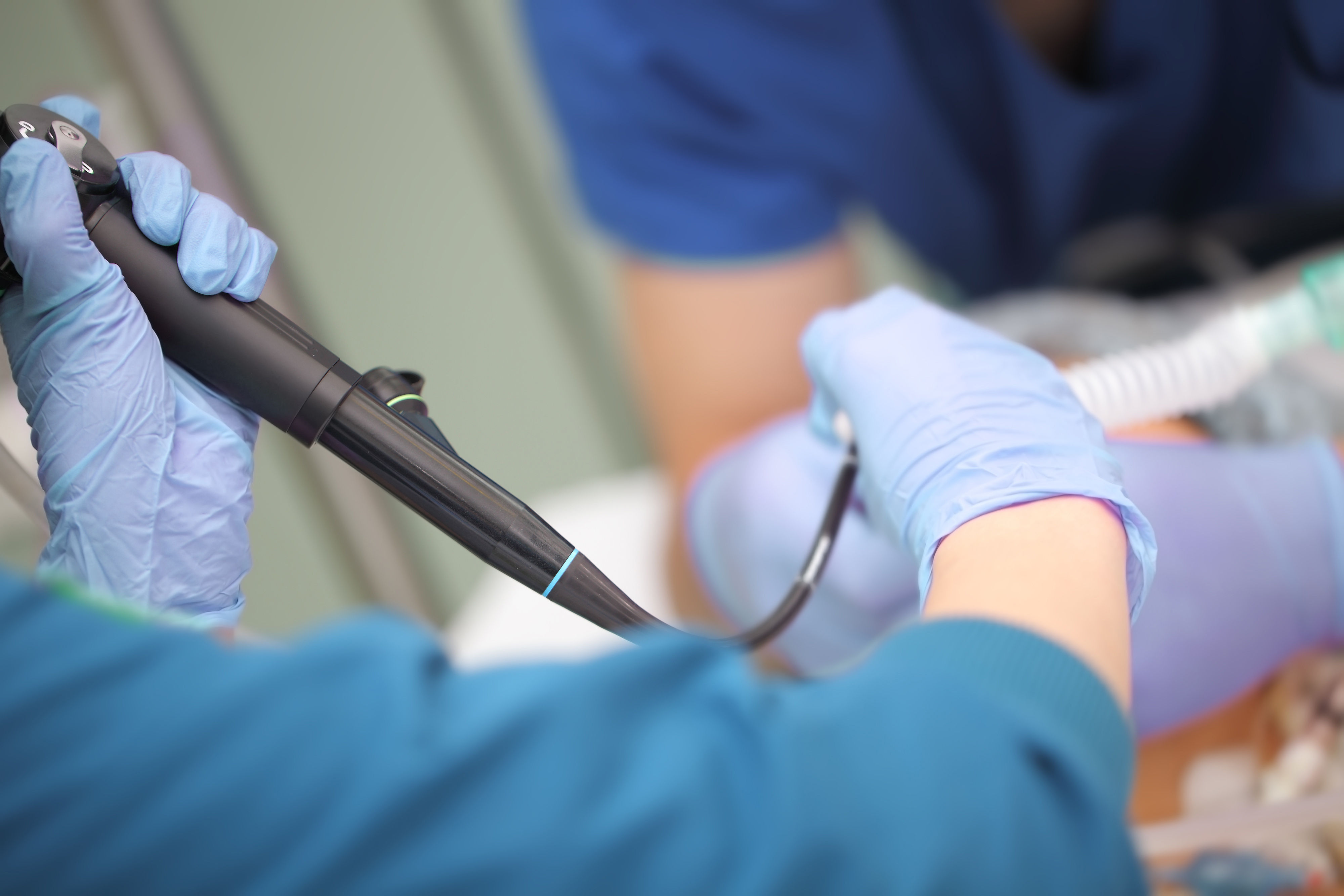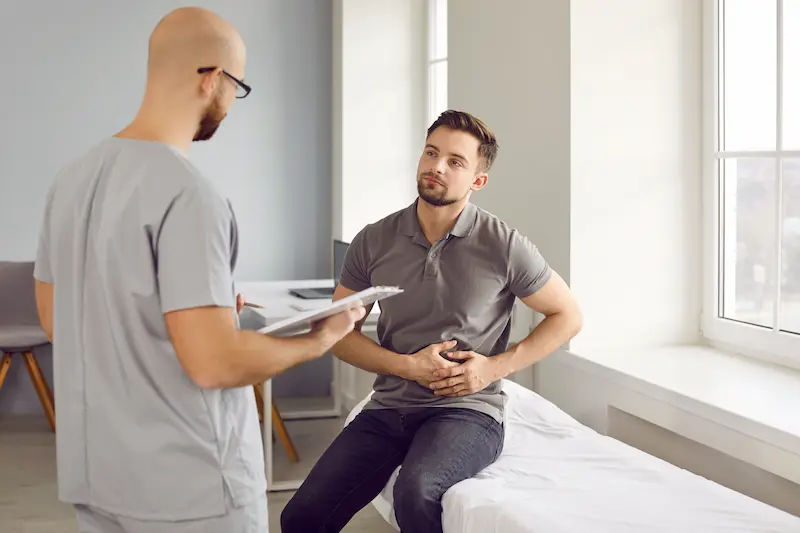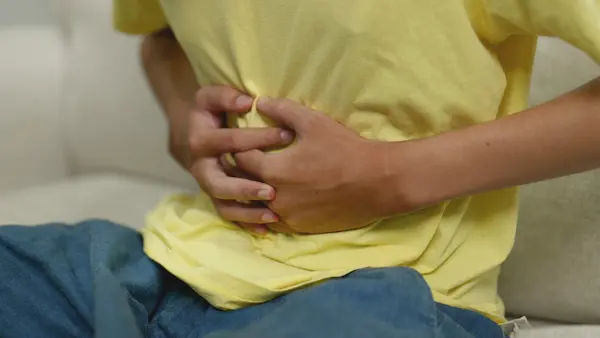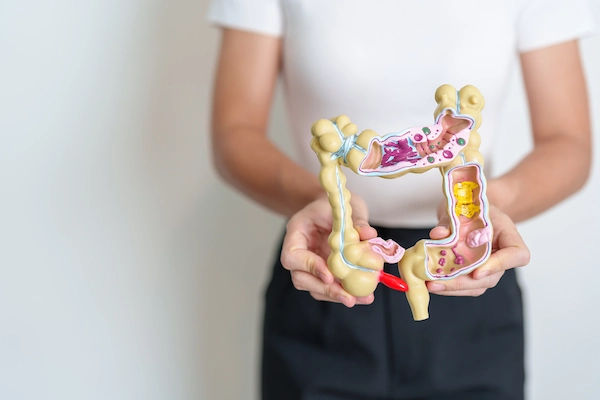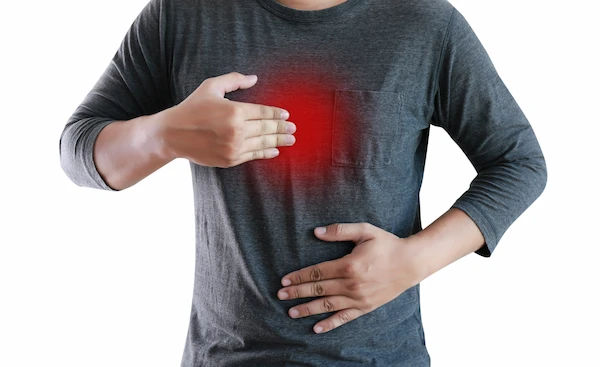- female
- 30 Years
- 29/01/2025
I've been dealing with serious acidity issues and once I start vomiting, it just won't stop easily. It's pretty badI've been feeling dizzy and fatigued, not really wanting to do anything, and I can't sleep properly at night. Today, I've been throwing up since morning until the afternoon. What can I do to stop this vomiting and get my acidity under control?
Answered by 1 Apollo Doctors
Colicky pain below the abdomen can be concerning.
Possible causes:
- Kidney stones: Pain can radiate from the flank to the groin.
- Appendicitis: Typically starts near the belly button and shifts to the lower right abdomen.
- Ovulation pain (in women): Mid-cycle pain, usually on one side.
- Gastrointestinal issues: Constipation, gas, or inflammatory bowel disease (IBD).
- Urinary tract infection (UTI): Pain while urinating, frequent urination.
What to do:
- Stay hydrated
- Apply a warm compress to the area
- Avoid heavy lifting or bending
Seek medical attention if:
- Pain intensifies or becomes constant
- Fever, nausea, or vomiting occur
- You experience difficulty urinating or bloody urine
Consult a doctor for a proper evaluation and diagnosis.
Dr. Mubarak Suggests...
Consult a Gastroenterology/gi Medicine Specialist
Answered 04/07/2025
0
0

More Gastroenterology/GI medicine Health Queries
View allI've been dealing with this pressure in my head for quite a while now, and it usually flares up a couple of hours after I eat, especially in the afternoon. I notice my stomach bloats during these times, and it feels somewhat better once I pass gas or have a bowel movement, but that head pressure is really what's bothering me. It's mostly on the right side of my head, although sometimes I feel it on the left too. Ive seen a bunch of doctors, like psychiatry and Gastro Endocrinologist specialists, but I dont have any issues with my stomach or stools. I just can't figure out what's causing this, and it's really stressing me out. Do you have any thoughts on what it could be or what I should do next?
Based on your symptoms, it sounds like you may be experiencing symptoms of migraine headaches triggered by food intake and associated with gastrointestinal symptoms. I recommend trying a combination medication like Sumatriptan and Naproxen (brand name Suminat-NT) for relief of your migraine symptoms. The usual dosage is one tablet at the onset of symptoms, followed by another tablet if needed after 2 hours, not exceeding two tablets in 24 hours. Additionally, you may benefit from taking Simethicone (brand name Colicaid) to help with the bloating and gas symptoms. The usual dosage is 40mg to 180mg taken orally after meals and at bedtime as needed. It is important to consult with a healthcare professional before starting any new medication regimen.
Answered by 1 Apollo Doctors
**User Query:** I have a pedunculated polyp in the duodenal bulb that's just over 1 cm. My doctor mentioned removal, but I'm worried about risks like bleeding or perforation during the procedure. How safe is a gastroscopy or duodenoscopy for this? Also, if I don't remove it, could it grow bigger, cause blockage, or turn cancerous? Would I eventually need major surgery if I leave it?
A duodenal bulb polyp, especially if over 1 cm, is generally recommended for removal due to the increased risk of it becoming cancerous. While gastroscopy or duodenoscopy is generally safe, there are risks like bleeding and perforation, though the likelihood is low. If left untreated, the polyp could potentially grow larger, potentially obstructing the digestive tract, and there's a chance it could become cancerous. Major surgery is less likely, but may be needed if the polyp progresses or causes complications
Answered by 1 Apollo Doctors
I'm feeling like my stomach is really full and tight, and it's hard for me to take a deep breath. Each time I try, my stomach tightens up, and my neck area feels tight too. I've noticed my stomach looks swollen. What could be going on?
If these symptoms persist or worsen, or if you have any additional concerns such as chest pain, dizziness, or difficulty swallowing, it's important to seek medical attention right away, as some conditions like GERD, gastritis, or heart-related issues require a doctor's evaluation. If this is an ongoing issue, or if you're feeling increasingly anxious about it, I would strongly recommend reaching out to a healthcare provider for a thorough evaluation.
Answered by 1 Apollo Doctors
Disclaimer: Answers on Apollo 247 are not intended to replace your doctor advice. Always seek help of a professional doctor in case of an medical emergency or ailment.

